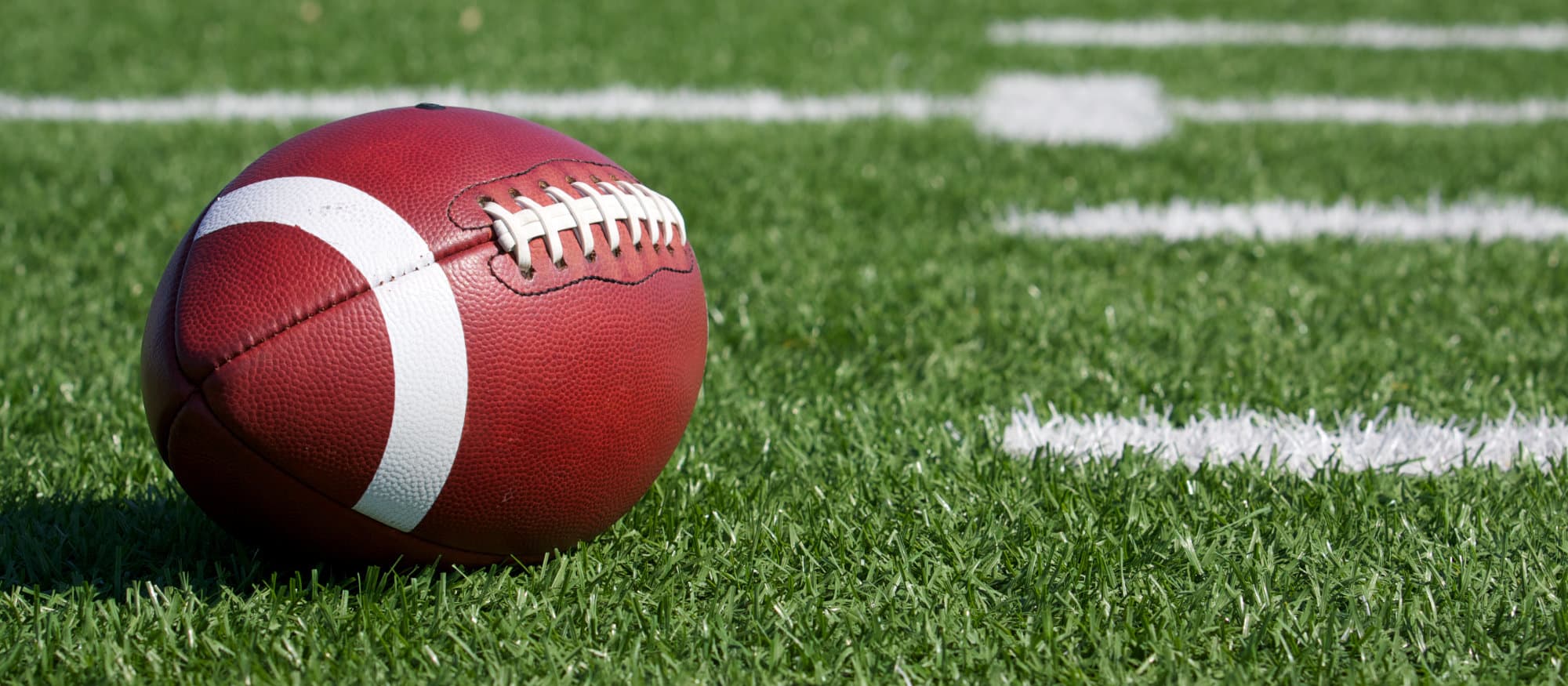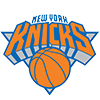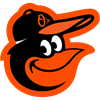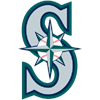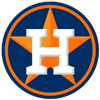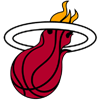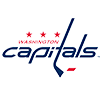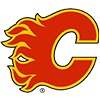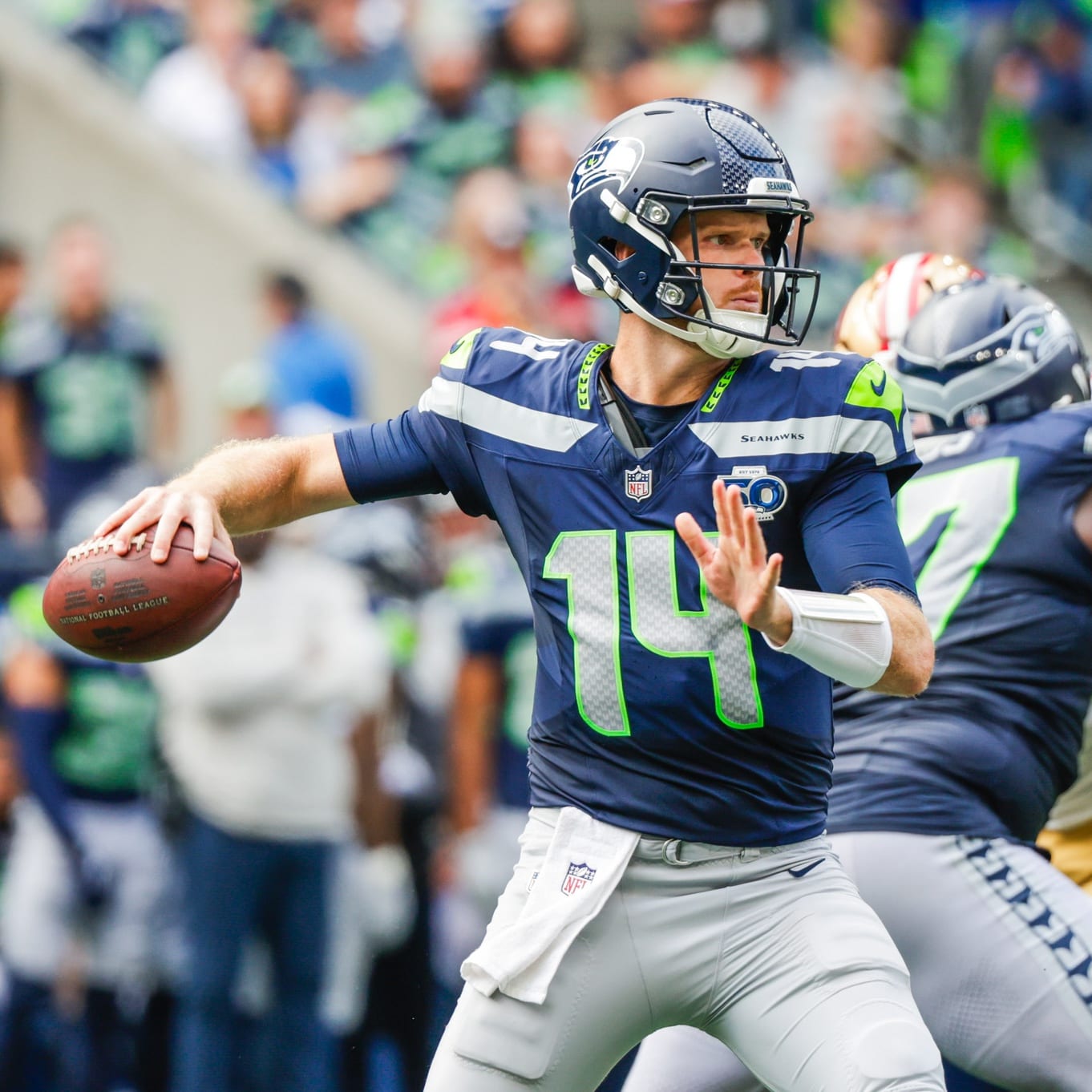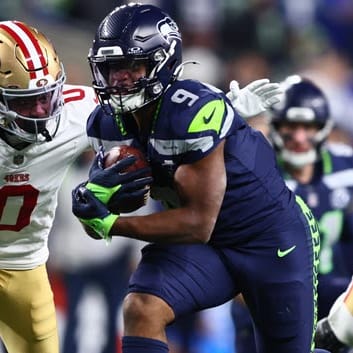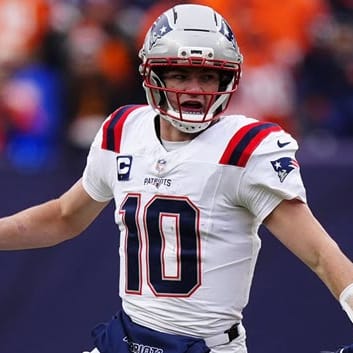Chris Liss has written Beating the Book for RotoWire.com since 1999, picking every game against the spread and compiling a record of 1,689-1,512 (52.8%), not including ties.
In the fall of 1977, when I was six, I bet on NFL games each week with my grandfather. At the beginning of the year, he would tell me which team was better and give me the choice. After a few games, I remembered which teams were good and would make the picks without asking. We wagered 10 cents per game, and I remember specifically having the Raiders at home against the Seahawks and seeing them win 44-7. I felt I was getting the hang of it. I was also up nearly half a dollar.
Two weeks later, my fortunes would change. The Raiders - one of my go-to teams - lost to the Chargers, the Vikings lost to the Bears, the Falcons lost to the Saints and the Dolphins lost to the Bengals. I was nearly cleaned out. My grandfather - who my uncle later told me used to bet $25,000 on a game in the 1960s and had the mob after him when he couldn't pay - couldn't have been more pleased. He told me there are no sure things and never to bet more than I could afford to lose.
By season's end we were close to even and upped the ante to 35 cents for the Cowboys-Broncos Super Bowl. My dad asked me whom
Chris Liss has written Beating the Book for RotoWire.com since 1999, picking every game against the spread and compiling a record of 1,689-1,512 (52.8%), not including ties.
In the fall of 1977, when I was six, I bet on NFL games each week with my grandfather. At the beginning of the year, he would tell me which team was better and give me the choice. After a few games, I remembered which teams were good and would make the picks without asking. We wagered 10 cents per game, and I remember specifically having the Raiders at home against the Seahawks and seeing them win 44-7. I felt I was getting the hang of it. I was also up nearly half a dollar.
Two weeks later, my fortunes would change. The Raiders - one of my go-to teams - lost to the Chargers, the Vikings lost to the Bears, the Falcons lost to the Saints and the Dolphins lost to the Bengals. I was nearly cleaned out. My grandfather - who my uncle later told me used to bet $25,000 on a game in the 1960s and had the mob after him when he couldn't pay - couldn't have been more pleased. He told me there are no sure things and never to bet more than I could afford to lose.
By season's end we were close to even and upped the ante to 35 cents for the Cowboys-Broncos Super Bowl. My dad asked me whom I was picking, and I said "Dallas." He said Denver was better. I thought about it, and when I got on the phone with my grandfather, I told him I was picking the Broncos. Before the game, I remember my dad saying: "The computer picked Denver." I assumed that was favorable news, but of course, it wasn't. The Cowboys rolled, 27-10. And I learned my second lesson: Never take tips (even from your dad or a computer - or at least what passed for one in 1977).
My grandfather died less than three months after the game, so we never did settle up. But little did he know that more than all my teachers in elementary and high school and all my professors in college and law school, he introduced me to a subject of which I would never get tired.
Trying to discern the relative strength of NFL teams at a given point in time is not an easy task, especially when you factor in the point spread. Vegas sets the lines to make each side roughly 50/50 and gives you the choice. It profits from the vigorish (vig), which means you typically risk 10 percent more than you take back. For example, to win $100, you'd have to risk $110. Over time, the vig is hard to overcome as Vegas usually does a pretty good job of setting the lines. In fact, you have to win 52.38 percent of the time just to break even. To understand this, imagine you made 100 $1 bets and won 53 of them. You'd win $53 and lose 47 x $1.10 or $51.70. So at 53 percent you're up $1.30. If you won just 52 bets, you'd win $52 and lose 48 x $1.10 or $52.80. So you'd be down 80 cents. The break-even point is therefore somewhere in between and turns out to be 52.38.
Is it easy to beat the Book more than 52.38 percent of the time? If it were, the Book would be out of business rather than taking up valuable real estate in nearly every new multi-billion-dollar Vegas palace.
So how does one go about outsmarting the house and making a profit? Let's explore a few angles:
Vegas is a Wagering Marketplace
The Book typically doesn't want to be too heavily invested on one side of a game, because in that case it could lose a lot of money should it go the wrong way. (There are some more aggressive "sharp" books with higher short-term risk tolerance, but for the sake of simplicity, let's stick with the "square" books). As such, it typically sets a line it thinks is most likely to split the action (the money wagered) equally on both sides and thereby derive a risk-free profit from the vig. For example, if the Patriots are seven-point favorites over the Jets, and $1,100 is risked on both the Patriots and Jets, then there are three possible outcomes: (1) The Patriots win by more than seven, in which case the Jets bettors lose $1,100 and the Patriots bettors win $1,000, netting the book $100; (2) The Jets lose by less than seven or win outright, and the Patriots bettors lose $1,100, while the Jets bettors win $1,000, netting the book $100; or (3) The Patriots win by exactly seven, in which case everyone gets their money back, and the book breaks even.
In this scenario, the Book is nothing more than a middleman or market maker between the Jets and Patriots bettors and takes a fee (the vig) for providing the service. So while it seems like one is betting against the house, one is really betting against whoever is willing to take the other side. The house in this case is collecting the vig no matter what and has no position on the game's straight up or against the spread (ATS) outcome.
Looking at it this way, when one picks a side, one is going against all the people who pick the opposite side. And often, there's a pattern to which kinds of people are on what side. Professional gamblers ("sharps") usually bet more money than casual ones ("squares"), but because there are far more squares than sharps, the books can take roughly an equal amount of action on each side. Moreover, squares tend to bet favorites, teams on winning streaks, teams with recognizable star quarterbacks - in short, teams that seem like winners and make them feel confident. Sharps typically have a more rigorous and historically sound basis for picking teams.
So if you see one team has 80 percent of the bets on it, and the line hasn't moved - or has even moved in the opposite direction - it's likely there are some sharps counterbalancing the volume of action with larger bets on the opposite side.
That means the team with only 20 percent of the volume likely has sharps, who typically have a rigorous basis for their picks, making large bets on it. As opposed to the other team that is merely popular with the betting public. If the book exists merely to facilitate the transfer of money from one party to another while taking its cut, then sports betting is essentially the transfer of money from squares to sharps over time. In which case you can simply decide to bet with the sharps.
The downsides of this are (1) There's no guarantee the sharps will win in the short run as even the best game is only about 60/40; (2) You could misread the sharp/square split (though in some cases it seems fairly obvious); (3) The sharps will spend time aggressively shopping for optimal lines and smaller vigs, something one might not have the time nor inclination to do; and (4) You're essentially taking tips not from a particular person but from "sharps" generally rather than relying on your own observations and analytic skills.
Metrics of Team Strength - The Number Crunchers
Keith Goldner of numberFire.com was kind enough to offer a window into what he does - and that's break down the teams and match-ups by the numbers and offer a rigorous data-based assessment of relative team strength. If the lines (which are based on splitting the action 50/50) are out of whack with that assessment, the number crunchers can exploit that.
The strength of this approach is that it's totally unbiased, uses hard data rather than opinion and can be rigorously tested for success-rate and improved. Its weakness is that performance data doesn't account for recent injuries or abrupt team growth or regression. Speaking of which ...
Team Growth/Regression
The Giants' two recent Super Bowl runs were remarkable in that their defense played at a far higher level during the playoffs than in the regular season. As such, their team strength was woefully under-represented by the point spread. The lines are largely based on public perception that is mostly based on past performance, especially recent past performance. To the extent a team diverges from what it's done in the past - either positively or negatively - it's going to be improperly valued by the books and betting public.
So if you have a good read on where a team's headed before the results catch up to it, you can profit. Of course, most of the reasons to think a team is headed for improvement are measurable by the number crunchers and/or observed by the public. It's not often easy to observe the seeds of something in a team that goes unnoticed by everyone else.
Match-up/Set-up/Venue
Sometimes situations present themselves that are favorable irrespective of team strength to date, market perception or prospective growth. For example, last October the Saints had just beaten the Colts by 55 at home and were laying 14 points on the road against the Rams, one of the weakest teams in the NFL. Because home field is typically worth three points, that meant the line would be Saints minus-20 at home and probably more given the huge edge New Orleans had while playing in the Superdome. In other words, this line was outrageous by NFL standards, especially because the set-up was bad for New Orleans, which had to be overconfident and was a much poorer team on the road. For the Rams, there was no pressure, only upside. I made them my best bet, picking the Saints to win by only seven. In fact, the Rams won outright by 10.
How was that possible? Did the Rams simply get lucky and recover three fumbles, return a kick for a touchdown and block a field goal? Actually, each team had a defensive score, but the Rams won the turnover battle by a margin of just 2:1. St. Louis had more first downs and more total yards. They also sacked Drew Brees six times to A.J. Feeley's four. In sum, they didn't get lucky, they simply outplayed a much better team. How was it possible for a team like the Rams who were not on the rise to beat a team like the Saints who were not on the decline this soundly? The Rams played their "A" game while the Saints played their "D" one. Why did this happen? There are probably infinitely many reasons ranging from what each player ate for breakfast that morning to his lack of sleep the prior night at the team hotel. But if there were ever a game where the better team was primed for a letdown, this was it. It was not lucky, and it had no relationship to anything that transpired before or after it. Hence I'll chalk it up to the match-up, set-up and venue.
Hunches
This is dangerous territory because all of us are able to fool ourselves into believing a great many things, and it's hard to distinguish a plausible delusion from a genuine hunch. I'll define the latter as follows: "An impression based on years of close observation that makes itself known to the conscious mind without revealing the logic behind it."
Most of us seriously attempting to get an edge against the Book have spent thousands of hours watching games, looking at box scores and analyzing data. It's all stored in our minds somewhere, but we can't recall most of it. Do you remember how Ray Rice looked in the first quarter of the Ravens-Cardinals game last year? You probably don't, but if you watched it, the memory is there and probably could be accessed under hypnosis. The point is you know a lot of things your conscious mind simply cannot access at will, and so if you try to decide who to bet the next time a team similar to the Ravens plays a team similar to the Cardinals, it wouldn't even occur to you to consider how that other game played out. Instead if you simply ask yourself, "Who do I want to pick here?" and wait 20 seconds before going over the logic of it, you might find yourself with a strong impression or hunch. Again, it's easy to mistake wish casting for a hunch, and there will be many games about which you feel almost nothing at all. But occasionally, you will get a strong feeling about one side. I've found it's important to heed that.
The Great Unknown
No matter how much football you watch, or how good your number-crunching algorithm is, handicapping games against the spread is essentially predicting the future. And predicting the future will always be difficult for two reasons: (1) While our tools for understanding what happened in the past keep improving, they will never be perfect, and more importantly; (2) Even if we were to understand the past perfectly, that understanding will never correlate perfectly with what transpires in the future.
For an example of (1) consider that our understanding has evolved from looking at won-loss record, to point differential, to net yards per play, to success rate and efficiency based on down and distance to whatever newer metric will even more precisely describe a team's prior performance level. For an example of (2) consider teams like last year's playoff Giants whose performance diverged sharply from anything in their regular-season history. Maybe there's some hidden seed to be found in their regular season stats that's yet to be unearthed, but more likely, the Giants didn't just play better than usual, they became a different team. While past performance has a strong correlation with future results, it will never be close to perfect. And just because the past might be the only tool we have, that doesn't mean it's the entire story.
When two teams play an NFL game, you have billion-dollar organizations employing highly experienced experts to train, prepare and direct some of the best athletes on the planet to compete against one another. If you played touch football with the worst scrubs on the worst teams in the league, your jaw would drop. It really is 11 men against 11 men, and anything can happen, no matter what we saw last week or what the metrics say.
As such, it sometimes makes sense to bet the underdog when the line is historically very large (like the Saints laying 14 on the road in St. Louis), just to fade the strong presumption of the known - that the Saints are good and the Rams are bad. The Saints may have been good, and the Rams may have been bad, but we don't know how they will be in the future, or during a particular game. And when you take an underdog, the points are a certainty, but the quality of teams is always in flux.
There are no doubt other angles I'm leaving out, many with which others have surely had success. But these are the factors I typically take into account when faced with each week's slate of games. As you can see, it's not a simple endeavor, and the deeper one delves into it, the more complex layers emerge.
In sum, what seems like at best a frivolous hobby (and at worst a dangerous vice) raises fundamental questions about the application of knowledge in the face of uncertainty. You could probably find the same depth by studying business, economics, weather systems or fruit flies, but those fields simply do not offer the thrill (for me at least) of having a stake in NFL games each Sunday.


